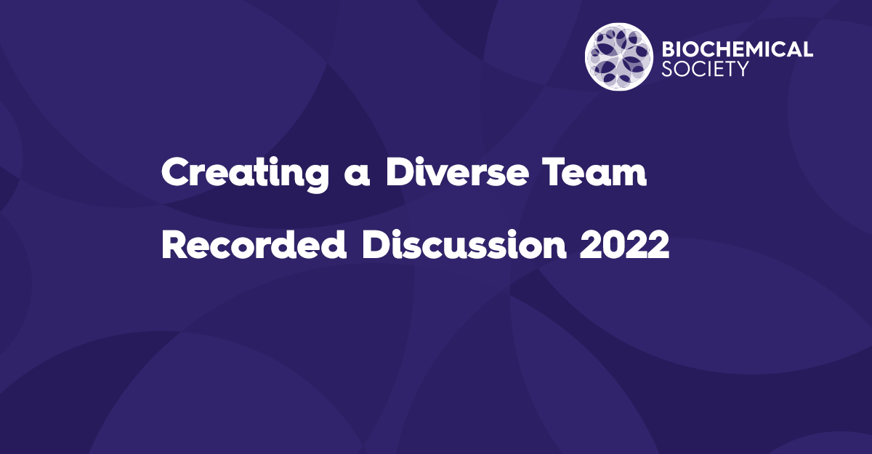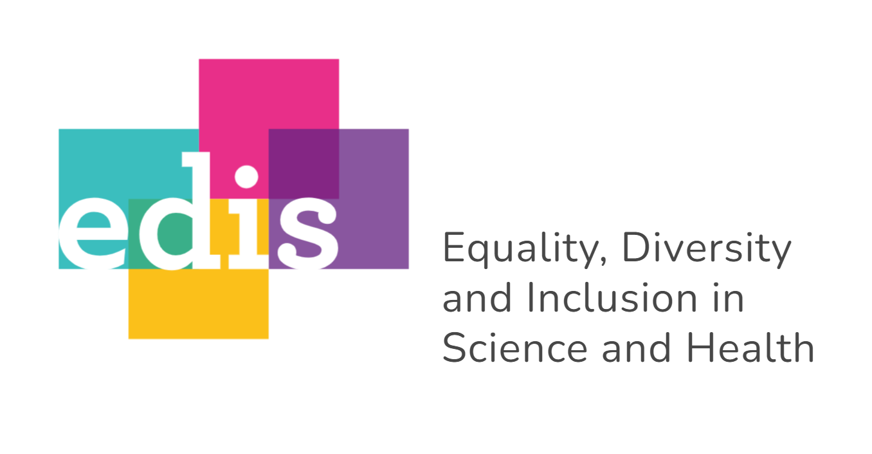
Our EDI Data Surveys
Our annual EDI Data Survey allows us to better understand our community and how we can make changes to provide as inclusive an environment as possible for all.
Learning more about the different groups of people who engage with us means we can take steps to tailor changes based on data, rather than using guesswork or assumptions. It also allows us to identify gaps and barriers to engagement that we can work to address.
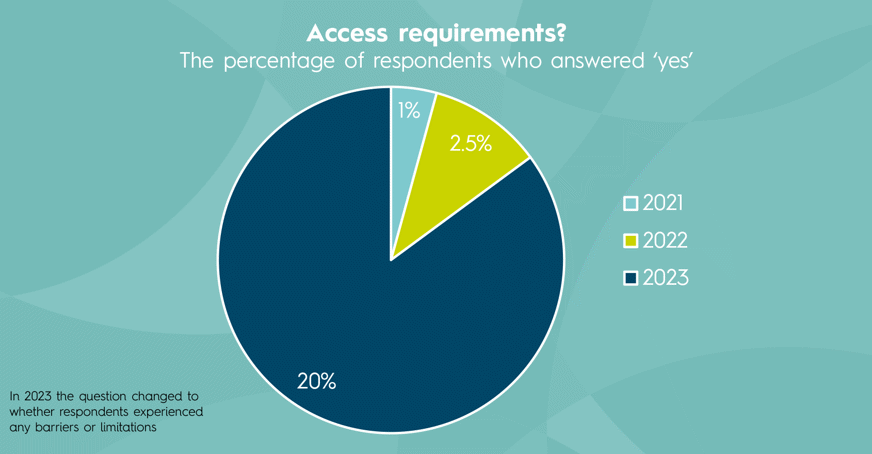
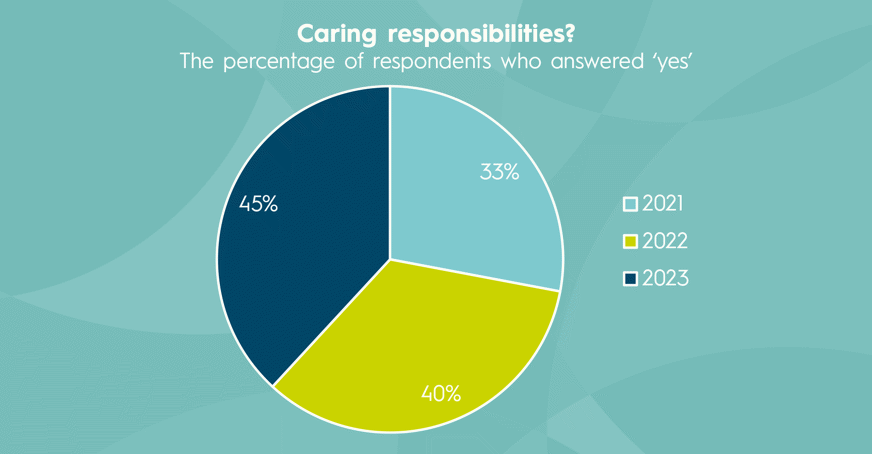
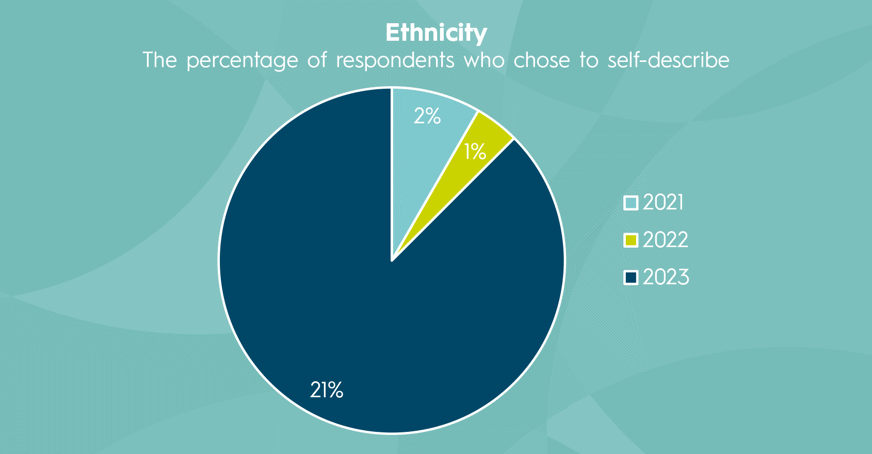
Disability: In 2021 and 2022 we asked if respondents had any access requirements, with up to 2.5% saying yes. We changed to a new question in 2023 to recognize barriers experienced in everyday life, to which 20% of respondents answered yes.
Caring responsibilities: The percentage of respondents identifying as having a caring responsibility has been gradually increasing since 2021, with 45% of respondents in 2023 answering yes to this question.
Ethnicity: We have always provided a 'prefer to self describe' option when asking about ethnicity. In 2021 and 2022 up to 2% of respondents chose this option, but we saw a significant increase in 2023, when 21% of respondents chose to self describe.

